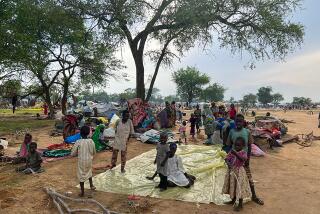Dark Questions for Algeria
- Share via
Algeria’s undeclared civil war is now entering its seventh year. The death toll, the government said this week, stands at 26,563, but Algiers frequently has underreported casualties. Credible independent estimates place the number of dead at more than 65,000. At least 1,200 of those deaths came in just the past few weeks, during the Muslim holy month of Ramadan, in an orgy of butchery and rape concentrated in the western part of the country. The government blames Islamist radicals for the years of slaughter, mostly of defenseless civilians. But provocative questions about the military-backed regime’s own activities have been raised. Some Algerians now seeking asylum in Europe have told authorities they are former police officers who were ordered to pose as Islamists and take part in mass killings.
The wave of murders began in 1992, after the government canceled elections that it feared might be won by fundamentalist Muslims. For years the world was only dimly conscious of the strife. Lately, as attacks on civilians have increased in ferocity and apparent randomness, international awareness has grown and doubts about government claims have expanded. In some cases police and military units stationed just a short distance from villages under prolonged attack failed to offer aid. Those failures, never satisfactorily explained, inevitably feed suspicions that the regime may be more interested in encouraging fear and hatred of the fundamentalists than it is in protecting the innocent.
A low-level mission from the European Union that spent one day in Algiers came away frustrated by the regime’s refusal to allow human rights monitors to see for themselves what is happening. As the barbarity runs on unchecked, the government haughtily insists that it will permit no outsiders to interfere in Algeria’s internal affairs. Its real concern may well be that independent observers would find plenty to fault in the way the country is governed. Algeria’s press is censored and the political opposition is kept on a short leash, so any credible pursuit of the facts could come only from outsiders.
The European Union, supported by the United States, would like to see the United Nations exert pressure for an international inquiry. Given the appalling insecurity that now hangs over their lives, most Algerians would surely welcome such scrutiny.
More to Read
Sign up for Essential California
The most important California stories and recommendations in your inbox every morning.
You may occasionally receive promotional content from the Los Angeles Times.










